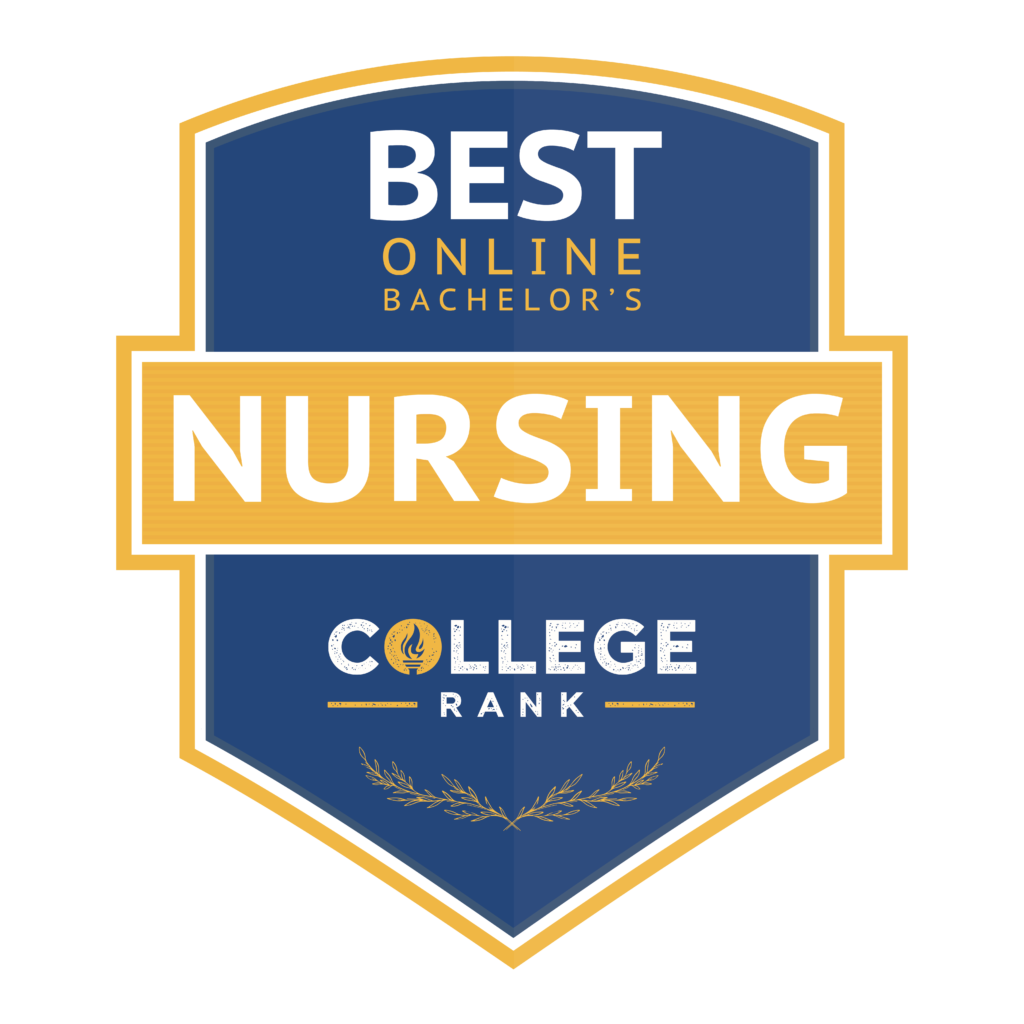There is a crisis in medical staff. Baby boomers and subsequent generations will continue to age and require extensive medical care and personnel to administer that help. As a result, the nursing industry is positively booming, making the best online nursing programs the perfect choice for young professionals looking to do great work and earn an excellent salary.
The best online BSN programs can prepare you for the demanding but rewarding job of nursing, either in general or with a specialty. Even better, these bachelor’s degree programs incorporate RN licensure and almost always lead to a direct salary boost relative to nurses who have just completed the certificate.
What are the Best Online Nursing Degrees?
We know that you have educational goals that you’re itching to pursue, but you may not know where to start. The editors of CollegeRank utilize a unique ranking methodology based on the following three aspects:
40% Potential Salary After Graduation: Average mid-career salary of school alumni
30% Institutional Accreditation: Regional and National Accreditation for the 2019-2020 school year
30% Overall Degree Affordability: Average cost of undergraduate and graduate tuition per school
At CollegeRank, we strive to do our best to guide you and your family toward a fruitful academic career. The pursuit of knowledge is a noble one, and we want to help you reach your goals. For questions, comments, badge downloads, or data corrections, please feel free to reach out to us at editor@www.collegerank.net.
The University of Texas at Arlington
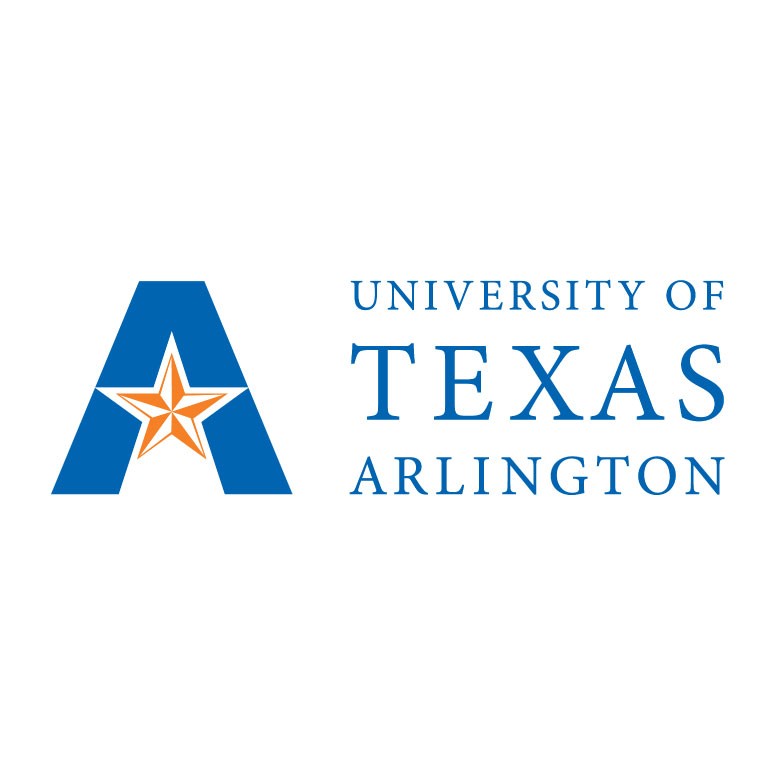
UTA’s online nursing program requires 51 credit hours of nursing courses, along with pre-requisite and pre-nursing courses. The program is accredited by the Commission on Collegiate Nursing Education. The nursing curriculum includes clinical courses that can only be completed with partnership hospitals in Texas and nursing courses such as:
- Clinical Nursing Foundations
- Nursing Leadership & Management
- Community Health Nursing
Examples of elective courses are Legacy of the Family and Medical Terminology. Pre-nursing courses cover topics such as pharmacology and pathophysiological processes.
Program graduates with an online bachelor of nursing degree have gone on to pursue a wide range of careers. Alumni now work in:
- community hospitals
- long-term care facilities
- schools
- trauma centers
- home health agencies
The UTA online nursing program has graduation and licensure rates that both exceed 90%.
California State University, Dominguez Hills

California State University, Dominguez Hills, has one of the most diverse student bodies of any college or university in the United States. CSUDH graduates more African-American students than any other public university in the state of California. It also hosts the annual Connecting Women to Power Business conference, which is designed to support female entrepreneurs.
Dominguez Hills’ online program is designed for registered nurses or students who are about to complete their associate degree in nursing. Students take synchronized exams, but otherwise, the course content can be accessed at each student’s discretion. The program requires students to attend two consecutive lab days on campus.
Prerequisite courses for the program include basic chemistry and statistics, along with general education courses such as oral communication and anatomy. In the online nursing program, students will take courses in:
- Pathophysiology
- Health Care Informatics
- Cultural Diversity in Healthcare
Students may complete challenge exams in lieu of certain courses. These allow them to test their prior knowledge and bypass courses that cover topics with which they are already familiar. Part-time students are generally able to complete the program in around three years by taking courses in the fall, spring, and summer semesters. The program is accredited by the Commission on Collegiate Nursing Education.
North Dakota State University
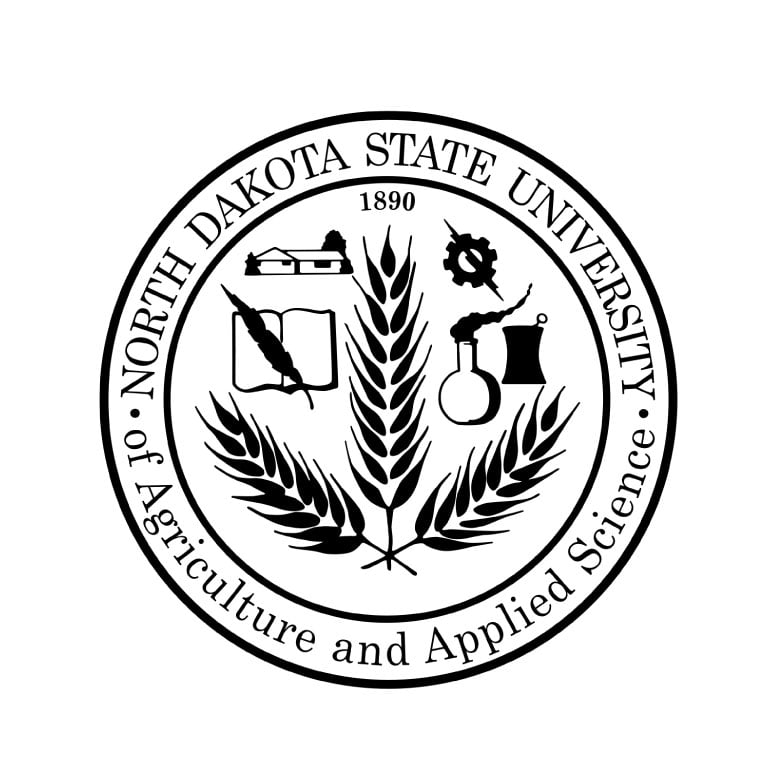
North Dakota State offers two blended-learning programs for students who want to earn a bachelor’s degree in nursing. The programs are aimed at students who either hold a current license in nursing or a registered nurse certification. Both programs include online classwork and in-person experiences.
The programs require between 12 and 15 classes of nursing-specific coursework. Sample courses in the RN to BSN program include Transcultural Nursing Care and Chronicity Through the Lifespan. The LPN to BSN program covers topics such as psychosocial nursing and complex issues in adult health.
Courses are structured to be eight weeks in length, with most students choosing to take one course at a time. Clinical requirements are completed in Fargo, ND, as are the lab components of certain courses, such as Health Assessment. Students are provided with clinical dates at least four months in advance to make planning travel as convenient as possible.
Clemson University
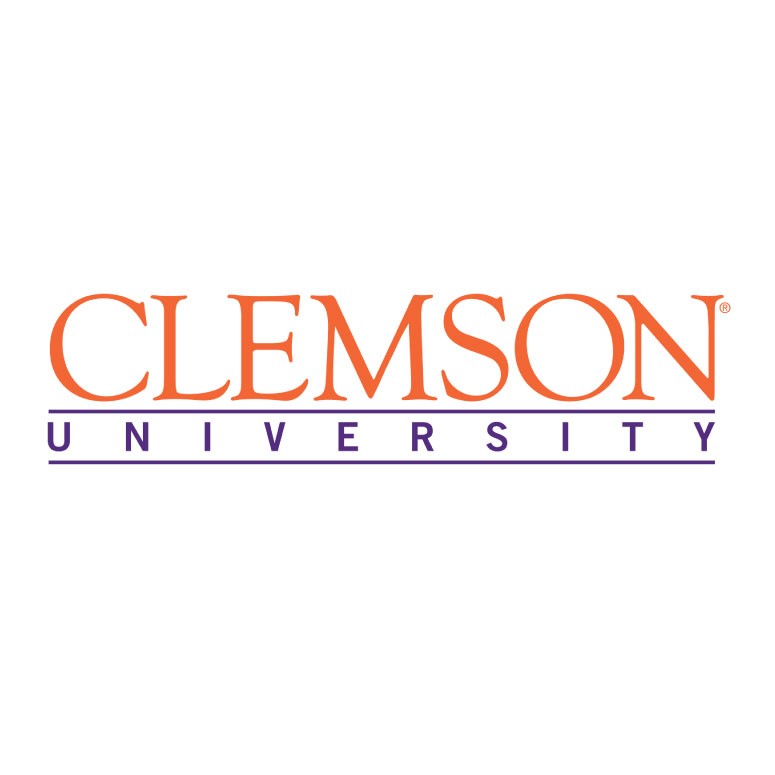
Clemson University is located in Clemson, SC. Notable alumni of the school include former South Carolina Governor Nikki Haley and former NFL player William “The Refrigerator” Perry.
Clemson’s online RNBS completion program can be completed in as few as 12 months by students who are enrolled full-time. The program is only offered in a fully online format. Part-time enrollment options are available for students who want or need to work while enrolled.
Sample courses from the program curriculum include:
- Healthcare Genetics
- Leadership and Management in Nursing
- Community Health Nursing
Full-time students take three courses per semester. Students may join the program in either the fall or spring semesters. Prerequisite courses include basic biology and chemistry, along with general education subjects such as English and communications.
The program is designed to help licensed, experienced nurses socialize their previous training, namely by introducing complexities such as ethical decision-making, intellectual curiosity, and interdisciplinary collegiality. Students must attend an on-campus orientation day at Clemson before beginning their studies.
University of Wisconsin

The University of Wisconsin is the oldest and largest public university in the state of Wisconsin. The school is home to more than 47,000 students, including 34,000 undergraduates. A number of UW faculty members have pioneered important breakthroughs in their fields, including the first synthesis of human embryonic stem cells by Professor James Thomson.
Wisconsin’s RN to BSN program is designed for working adults, with coursework being delivered primarily online. Students must complete 33 credit hours of coursework, which typically takes between 1.5 and 2.5 years.
Courses in the online nursing degree program include:
- Foundations of Professional Nursing
- Information & Health Technology
- Community Health Nursing
- Gerontology
The program ends with a capstone clinical course, where students gain hands-on experience in a local clinical setting. Students are required to complete roughly 135 hours as a part of their clinical experience. Students may be able to arrange clinical experiences near where they live.
Graduates of the program are qualified for opportunities in:
- teaching
- management
- professional specializations
Hospitals with a higher percentage of nurses who have completed their BSN may help hospitals qualify for a “magnet designation” for their commitment to high-quality healthcare delivery. Hospitals seeking this designation often look for nurses holding BSN qualifications.
University of Arkansas

The University of Arkansas first opened as Arkansas Industrial University, in 1872. Arkansas’ team mascot is the Razorback, though teams are sometimes referred to by the nickname “the Hogs.” During football games, students will often “call the hogs,” which involves chanting “Woo Pig Sooie!”
Arkansas’ online BSN program requires 30 credit hours of coursework, which can normally be completed in three semesters. All coursework is delivered online through asynchronous materials that students can access at any time. Students may enroll either part- or full-time, depending on their availability. The online nursing degree also includes 75 clinical hours.
All students take the following courses:
- Pathophysiology
- Population and Community Health Nursing
- Leadership for Professional Nurses
They may also earn credit for courses related to subjects such as professional role implementation in teaching or critical care.
Students who have a current, unencumbered nursing license, an associate of nursing degree, or 1,000 hours of recent work experience are eligible to apply to the program. Clinical immersions are completed in each student’s local area. There is no on-campus requirement for this program. Program start dates are available in August and January. All applicants need a minimum 2.8 GPA.
University of Illinois

The University of Illinois is home to the second-largest university library in the country, behind Harvard University. Illinois is also home to America’s fastest university supercomputer and even hosts the National Center for Supercomputing Applications. The school has produced 30 Nobel Laureates, two Turing Award winners, and one Fields medalist.
The University of Illinois offers a 100% online RN to BSN program, which students can begin in the fall, spring, or summer. The program has a 94% graduation rate and guarantees admission to registered nurses who hold an active U.S. license in nursing. These students also are not required to complete clinicals as a part of the program.
The online nursing degree program is designed to be completed in around 16 months, with students taking courses such as:
- Introduction to Nursing Informatics
- Caring in Professional Nursing
- Nursing Care for Populations
Students progress through the program in cohorts, which helps them to build professional and personal support systems.
Illinois guarantees students that their tuition costs will remain consistent for the entirety of their time in the program, with no sudden increases or added fees.
University of Florida

The University of Florida is located in Gainesville, FL. It has an endowment of more than $2 billion and is considered one of the top public universities in the United States. In addition to their academic prowess, students excel in athletic competitions; among them, Florida students and alumni have won more than 120 Olympic medals.
Florida’s online BSN program allows students with an unencumbered Florida RN license, or who have an enhanced license through the Nurse Licensure Compact to pursue a 100% online program specially designed for working RNs. Admission to the nursing education program is offered only in the spring and requires students to complete two separate applications.
Applicants are expected to have completed prerequisite courses in:
- Anatomy and Physiology
- Microbiology
- Human Growth and Development
- Human Nutrition
Once they enter the program, students enroll in courses such as:
- Genetics and Genomics in Healthcare
- Policy and Change in Nursing Practice
- Pathophysiology and Pharmacology
Two courses in the program, Health Assessment and Public Health, have clinical components. Clinical components may be completed either through online activities or with activities that can be accomplished in the student’s local community. Graduates of the program are qualified for many nursing career paths, such as:
- hospice
- surgical
- school
- clinical
- pediatric
- home care nursing
Arizona State University
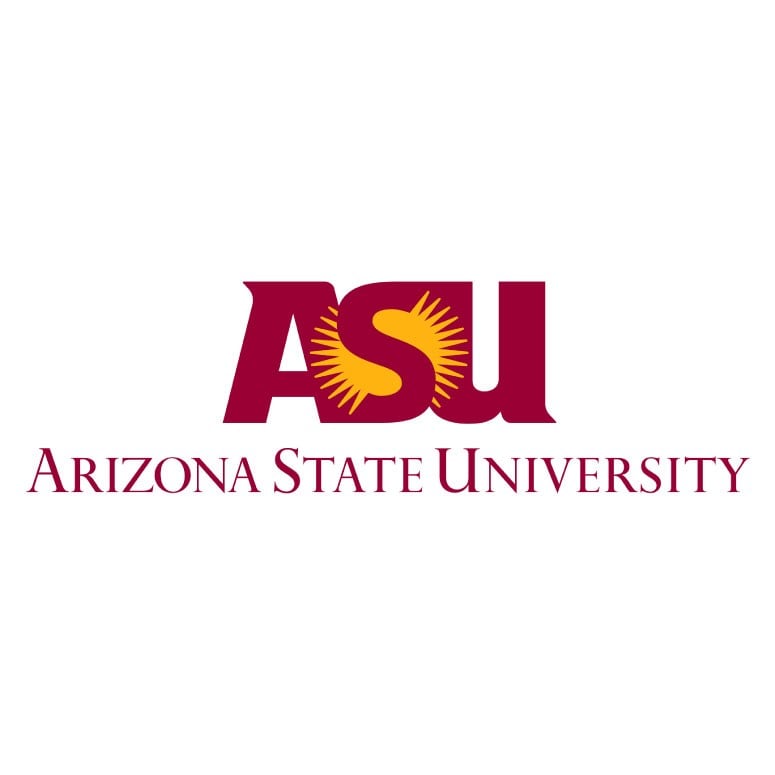
Arizona State University is one of the largest universities in the United States. It is home to almost 80,000 on-campus students, and another 30,000 students attend classes via the school’s online learning platform. ASU also boasts more than 1,100 registered student organizations and 4,400 academic staff members.
ASU offers an RN to BSN nursing degree online that requires ten total classes for a total of 39 credit hours. Classes last 7.5 weeks each, and the entire program can be completed in as few as 14 to 24 months. Graduates of the program have gone on to pursue careers in health services management, along with a wide variety of nursing fields.
Students in the program take:
- Professional Nursing Theory
- Nursing Research and Evidence Translation
- Health Promotion Across the Life Span
- Art of Nursing
Applicants are expected to have an active RN license in good standing and a minimum transfer GPA of 2.5.
Program faculty members have won numerous notable awards relating to the fields of teaching, research, and nursing and count among them a Fullbright Senior Scholar, a recipient of the Rosalynn Carter National Leadership Award in Caregiving, and the Ruth B. Freeman Award, from the American Public Health Association.
University of Massachusetts-Lowell
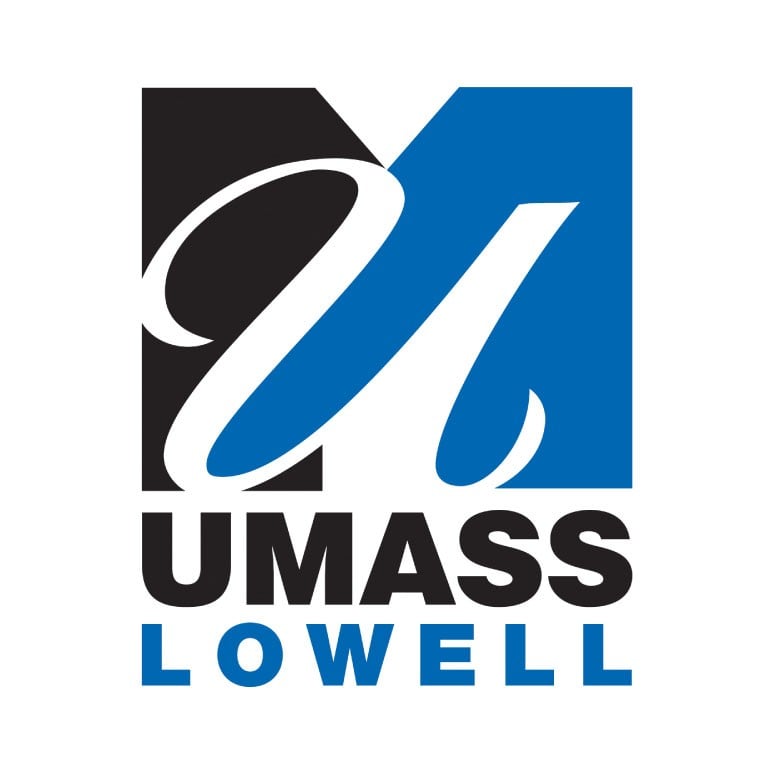
The University of Massachusetts – Lowell is the second-largest public university in Massachusetts. In addition to its programs in traditional academic subjects such as English and STEM fields, it offers accredited undergraduate degree programs in meteorology and plastics engineering.
Lowell’s BSN program can be completed in as few as 15 months. Students entering the program are awarded 39 credits for their Massachusetts RN License. The program curriculum is divided among prerequisite foundation courses, required nursing courses, and electives, which comprise 33, 27, and 21 credit hours, respectively.
Prerequisite courses cover human anatomy and physiology, introductory biology, and general education requirements. Nursing core courses include:
- Health Promotion in Nursing
- Health Assessment
- Community-Focused Health and Policy
Students may then pursue electives from the School of Nursing, as well as from departments such as Health Sciences, Psychology, and Sociology.
Most of the upper-level nursing courses are offered in a blended format, which combines online and in-person learning. Non-nursing free electives may be taken in fully online or face-to-face formats. Some of the approved electives that students have previously taken include:
- Psychology and Women
- Human Nutrition
- Legal Issues in Nursing
The University of Alabama
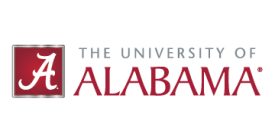
The University of Alabama is a public university located in Tuscaloosa, AL. The school’s athletic teams are known as the Crimson Tide, and the school’s most well-known accomplishments have been on the football field. The Crimson Tide have won 17 national football championships and produced 97 All-American players.
Alabama’s online BSN program offers students the ability to pursue a bachelor’s degree alone or both bachelor’s and master’s degrees. Students may choose to enroll in an RN to BSN program that can be completed in three semesters. Those opting to complete a joint BSN and MSN in Nurse Administration should expect to add at least an additional semester to their studies.
Online bachelor’s degree in nursing courses include:
- Nursing Informatics for Registered Nurses
- Leadership & Management Roles
- Inquiry & Evidence-Based Practice for RNs
The BSN and MSN program coursework is broken down into two phases: undergraduate and graduate coursework. Students complete five to six courses in Phase II.
Students who wish to pursue the joint bachelor’s and master’s programs may apply for promotion to upper-division coursework only during the summer term. Applicants to this program must have a GPA of at least 3.0 and hold an unencumbered nursing license in the state where they are planning to complete their clinical course requirements.
The George Washington University

George Washington University began in 1821 as Columbian College. The school’s name is, in part, owed to George Washington’s strong desire for a university in the nation’s capital; Washington even left a sum of money in his will to put toward the school’s founding. The school is non-denominational but has both Lutheran and Freemason historical connections.
GW offers an online RN to BSN program, which is delivered through a part-time, 4-semester curriculum. Students in the program are required to complete 21 credit hours and a professional portfolio. The professional portfolio includes 15 credit hours dedicated to proving their advanced standing and competency.
The program curriculum includes courses such as:
- Patient Safety and Health Care Quality
- Community and Public Health
- Nursing Leadership
Online bachelor’s degree nursing students have the option of pursuing several elective courses in nursing, such as:
- Leadership Coaching in Nursing
- Health Economics & Finance
- Global Health for Health Care Professionals
Some of the courses from the program sequence may also count for graduate credit toward a master’s or doctoral degree in nursing. The program orientation is completed online, but some coursework may require visits to campus. These on-campus visits can include work with GW’s state-of-the-art healthcare simulation facilities, which offer practical experience before students even begin clinical work.
Stephen F. Austin State University
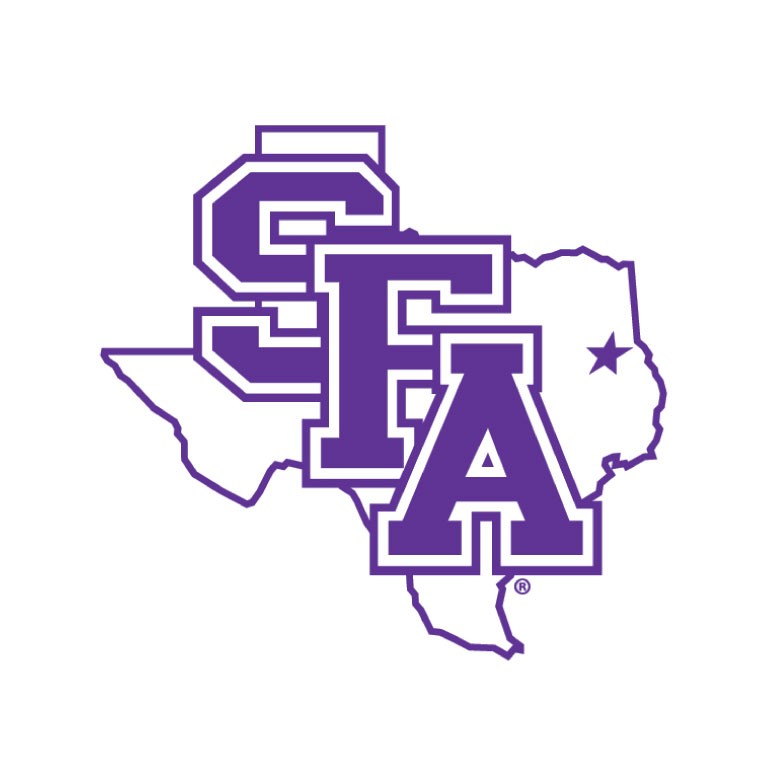
Stephen F. Austin’s athletic teams compete under the names Lumberjacks and Ladyjacks, as the lumber trade is a significant part of the local economy. Students refer to a statue of Austin on campus as “Surfin’ Steve,” as it is located on top of a fountain.
Stephen F. Austin offers one of the top online undergraduate nursing programs. Their online RN to BSN program includes 31 credit hours of coursework, which are focused on practical areas of knowledge such as:
- Leadership
- Community
- Research
- Cultural Impacts on Healthcare Delivery
The suggested course of study covers topic areas such as pharmacology, care of community populations, and cultural issues in professional nursing. Elective courses may include Violence in Families and Exploring Grief.
Applicants to the program should have a current license to practice nursing and be employed as a nurse. A minimum GPA of 2.5 is required in all transfer courses, and applicants must have completed an associate degree or diploma program in nursing. Students may also be eligible to apply if they do not yet have their nursing license but have qualified to sit for the requisite exam (NCLEX).
Southern Arkansas University

Southern Arkansas University was founded in 1909 as the Third District Agricultural School. SAU became a state college in 1951 before officially adopting its current name in 1976. The university hosts an annual family day event, during which SAU residence halls decorate and race twin-sized beds built on top of bicycle tires.
Southern Arkansas offers an online RN to BSN program that requires 64 credit hours within the nursing major, along with an overall credit requirement of 121 credit hours. Thirty-six hours from within the major are covered by prerequisite courses that would have been taken as part of a student’s prior associate degree or diploma program in nursing.
There are eight courses in the nursing major, along with an online orientation course. Sample courses from the major include:
- Health Assessment
- Community Health Nursing
- Health Alterations
- Informatics in Nursing
Courses such as Community Health Nursing and Medical/Surgical Nursing have clinical components that students must complete.
Appalachian State University

Appalachian State University is a public university located in Boone, NC. The school has a student body of more than 20,000 students, along with around 1,300 academic staff. The school’s motto is “To be, rather than to seem.” The mountains near campus allow students to pursue activities such as skiing and hiking in their free time.
App State offers a part-time online RN to BSN program. The program technically requires 120 credit hours, but only 30 must be completed at App State itself. The remaining credits are earned through prerequisite courses and degree programs. The program is designed to be completed in around one year.
Major courses in the program cover topics such as:
- Nursing Informatics
- Nursing Leadership and Management
- Nursing Care of Communities
- Health Assessment
Clinicals completed by students in the program are non-traditional to allow working students greater flexibility. These non-traditional clinicals include class projects and independent research.
All program coursework can be completed online. Graduates of the program have gone on to pursue careers in fields such as:
- Pediatrics
- Anesthesiology
- Neonatal Care
- Physicians’ Office Management
Program applicants should have an undergraduate GPA of at least 2.5 and hold a current nursing license from North Carolina or a compact state.
University of Central Florida
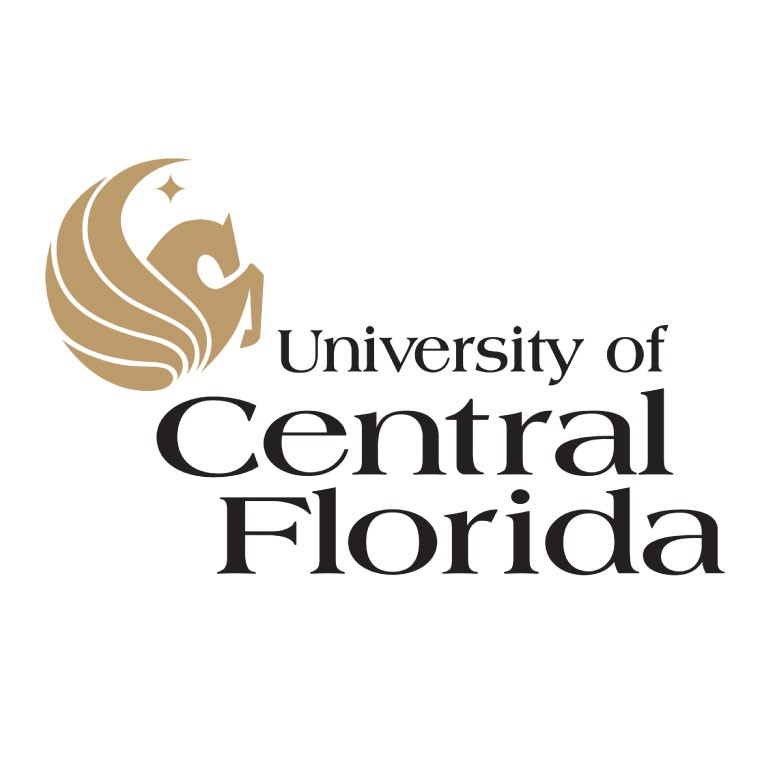
The University of Central Florida is a public university located in Orlando, FL. The school has the largest undergraduate student population by enrollment in the United States. In the 1960s, when the school was known as Florida Technical University, its mascot was the Citronaut, a mixture of an orange and an astronaut.
UCF’s online BSN to RN program is a 30-credit-hour program. The curriculum includes ten core courses and one elective course. Some of the courses offered are:
- Nursing Research
- Nursing Leadership
- Health Promotion Across the Lifespan
- Dimensions of Professional Nursing Practice
Students in this bachelor’s program may use some of the program credits toward the completion of a graduate degree in nursing. UCF allows students to transfer up to nine credit hours from this program to a graduate program. The graduate degree program is also an option for students who have a bachelor’s degree in a non-nursing major but now wish to pursue a career in nursing.
The program is available online but may also be completed at select regional campuses. Some courses are also taught at the Health First Education Center in Melbourne. Students can complete the degree in as few as three semesters but have as many as ten semesters to meet all of the degree requirements.
University of Cincinnati
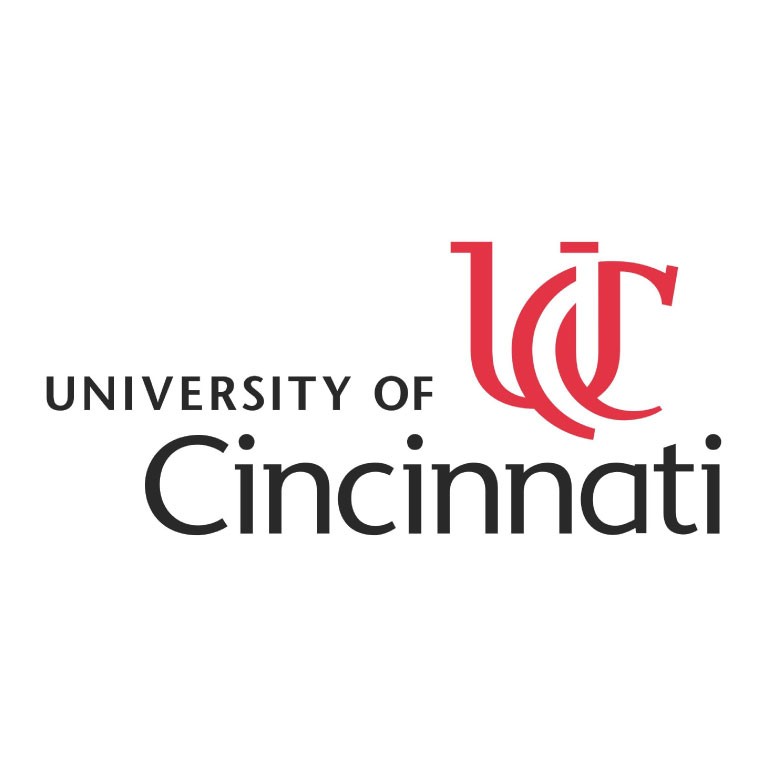
The University of Cincinnati is the oldest university in Cincinnati and one of the largest universities in the state of Ohio. Cincinnati began as a liberal arts university in the late 19th century. University presidents in the late 1990s began the process of transitioning the school to become the research university it is today.
Cincinnati’s online BSN program requires nine nursing courses, each of which lasts 7 weeks. Courses cover a wide variety of nursing subjects and include:
- Gerontological Nursing Practice
- Learning with Technology
- Focus on Community
The final capstone course in the program is 14 weeks long.
The program offers six start dates throughout the year. Students attending the program full-time can complete the requirements in nine months (two semesters). Those attending part-time can complete the program in either three or five months, depending on how many courses they take per semester (three or two, respectively).
University of Missouri
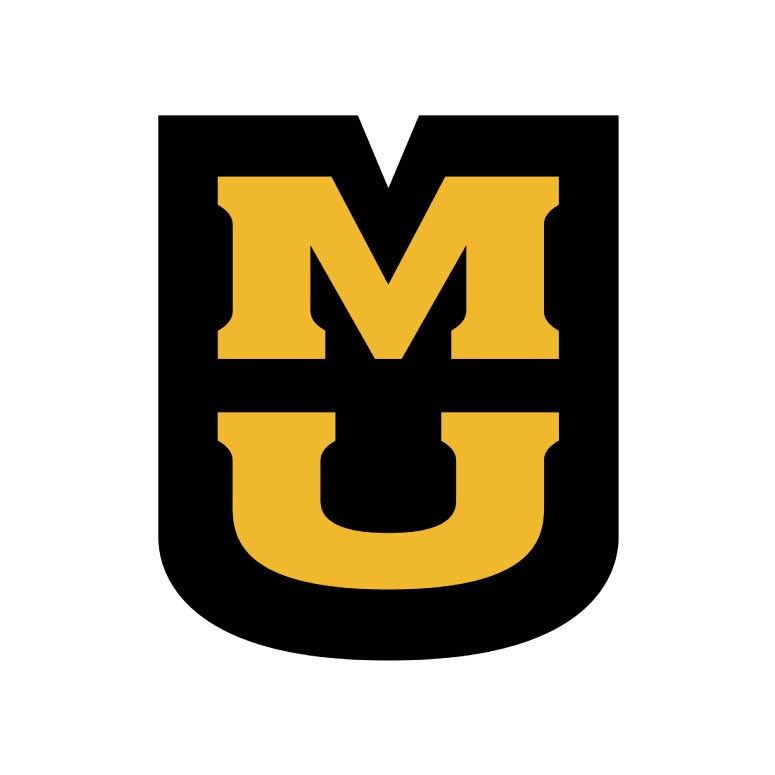
The University of Missouri is a public university located in Columbia, MO. UM has more than 300 academic degree programs, which are divided among 13 colleges and schools. The School of Journalism at UM was the first school of journalism to be founded in the United States.
The University of Missouri has a 100% online BSN program that requires students to complete 36 credit hours of coursework. The program is designed for working nurses who hold an unencumbered registered nursing license. Program applicants should have a minimum GPA of 2.5 in their undergraduate coursework.
Major courses in the nursing program include:
- Effectiveness in Human Health Outcomes
- Effectiveness in Complex Health Systems
- Information Systems and Technology for Healthcare
Some courses, such as Tools for Personal Effectiveness, are part of a multi-course sequence focused on topics such as leadership and personal development.
Missouri’s program uniquely brings rural, urban, and suburban nurses together to investigate the diverse approaches to and challenges in health care and the nursing profession. Student teams work with faculty and healthcare organizations to design and implement group-designed best practices. In the end, UM’s curriculum is designed to create leaders and innovators in the field of nursing.
Southwestern Oklahoma State University

Southwestern Oklahoma State University was originally founded as the Southwestern Normal School, educating future teachers in the state of Oklahoma. The school’s main expansion came during World War II, when it added arts and sciences programs, as well as the School of Pharmacy.
Southwestern Oklahoma has an RN to BSN program that offers start dates in the fall, spring, and summer semesters. Students applying to the program should have a GPA of at least 2.5 in their undergraduate coursework and an associate degree in nursing. Students in their final semester of an associate program are also eligible to apply.
The program’s suggested course sequence includes:
- Bridging Nursing Paradigms
- Nursing Statistics and Evidence-Based Practice
- Wellness Through Health Promotion
Students can complete clinical components on their own time. Most courses include student projects that are completed outside of the classroom.
On average, students need five to six 8-week-long sessions to complete the major requirements. The school offers five sessions during each calendar year, with two each in the fall and spring and another session during the summer. All program courses are offered every semester.
Michigan State University
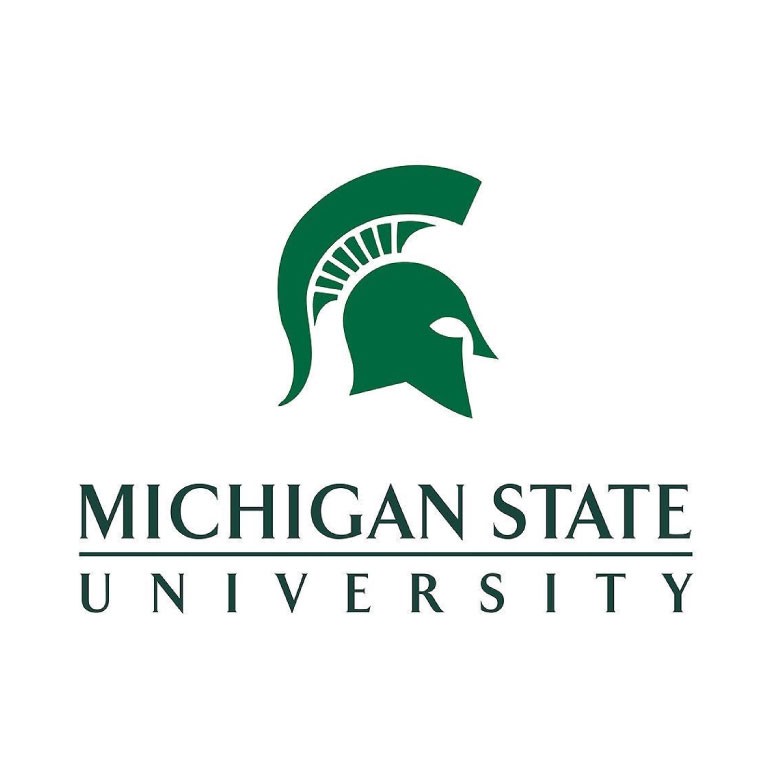
Michigan State University is one of the largest universities in the United States. MSU enrolls almost 50,000 students, and the school boasts more than half a million alumni. The school’s sports team, known as the Spartans, has won national championships in basketball, football, and ice hockey.
Michigan State’s RN to BSN program is tailored to fit the needs of practicing nurses looking to enhance their professional skills and advance their careers in nursing. The program is delivered in a part-time, 5-semester format, which includes clinical practice in both community health and leadership.
During the program, students take ten courses, such as:
- Leadership Immersion
- Foundations of Nursing Practice
- Pathophysiology
- Integrative Studies in Social Science
Graduates of the program are now employed at organizations, including Spectrum Health and Vanderbilt University Medical Center.
Frequently Asked Questions
While you only need an RN license to become an active nurse, those with bachelor’s degrees will be assigned more complex tasks and some managerial duties to reflect their greater expertise and academic experience.
Bachelor’s degrees in nursing will, therefore, offer more academic and practical experience than most RN licensure programs. A given BSN online program may focus more on the practical skills necessary to successfully administer medical care, while others may focus more on the academic aspects of the field. However, all online nursing programs incorporate a clinical hour requirement to ensure that all students receive plenty of hands-on experience before graduating.
Nurses can work in various medical facilities, such as hospitals and clinics. However, nurses with their bachelor’s degrees often have the ability to specialize in certain types of patient care.
For instance, some become cardiovascular nurses or addiction nurses. Others become neonatal nurses, which emphasizes care for newborns. Still, more may become critical care nurses, who spend lots of time in the emergency room and care for patients who are seriously ill or injured.
Those nurses who proceed to a master’s degree in nursing can specialize even further. Some can become nurse anesthetists who are trained to apply anesthesia to patients before and after an operation.
The salary potential for nursing majors is high, especially for those with a bachelor’s degree. According to the Bureau of Labor Statistics, median salaries for most nurses hover around $81,220 per year, and nursing jobs are growing at about 6 percent per year.
Nurses who proceed on to a master’s degree have even higher earning potential. Nurse practitioners, midwives, and anesthetists have a median annual salary of $125,900 per year. They also have an extremely high job growth rate of 38 percent, which is much faster than the national average.
Yes, it’s possible to earn a Bachelor of Science in Nursing (BSN) online through accredited programs offered by various universities. Online BSN programs provide flexibility for students to complete coursework and clinical requirements while balancing other responsibilities.
Yes, online nursing degrees from accredited institutions are credible and recognized by employers and licensing bodies. These programs offer the same curriculum and standards as traditional on-campus programs, providing students with quality education and preparation for nursing practice.
The Bachelor of Science in Nursing (BSN) is often considered the best degree for nursing as it provides comprehensive training in nursing theory, practice, and clinical skills. It prepares students to become registered nurses (RNs) and offers better job prospects and opportunities for career advancement compared to other nursing degrees like the Associate Degree in Nursing (ADN) or Licensed Practical Nurse (LPN) programs.
You can earn your Bachelor of Science in Nursing (BSN) in about 3 to 4 years if you pursue it full-time, but some accelerated programs may allow you to complete it in as little as 12 to 18 months by offering intensive coursework and clinical experiences.
It depends on your career goals. RN (Registered Nurse) is an entry-level nursing credential, while BSN (Bachelor of Science in Nursing) provides additional education and may lead to more career opportunities and higher earning potential in the long run.
Related:
